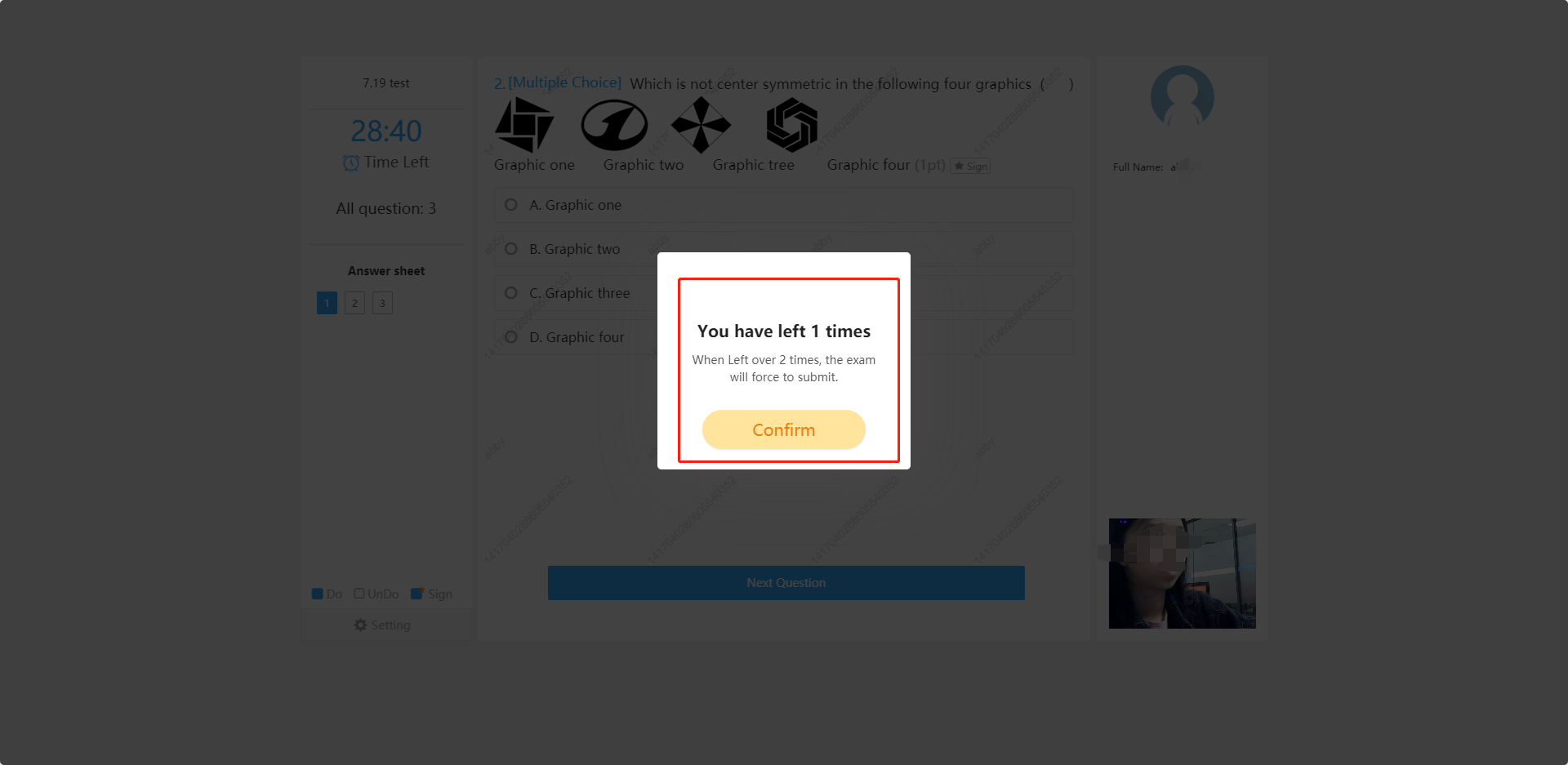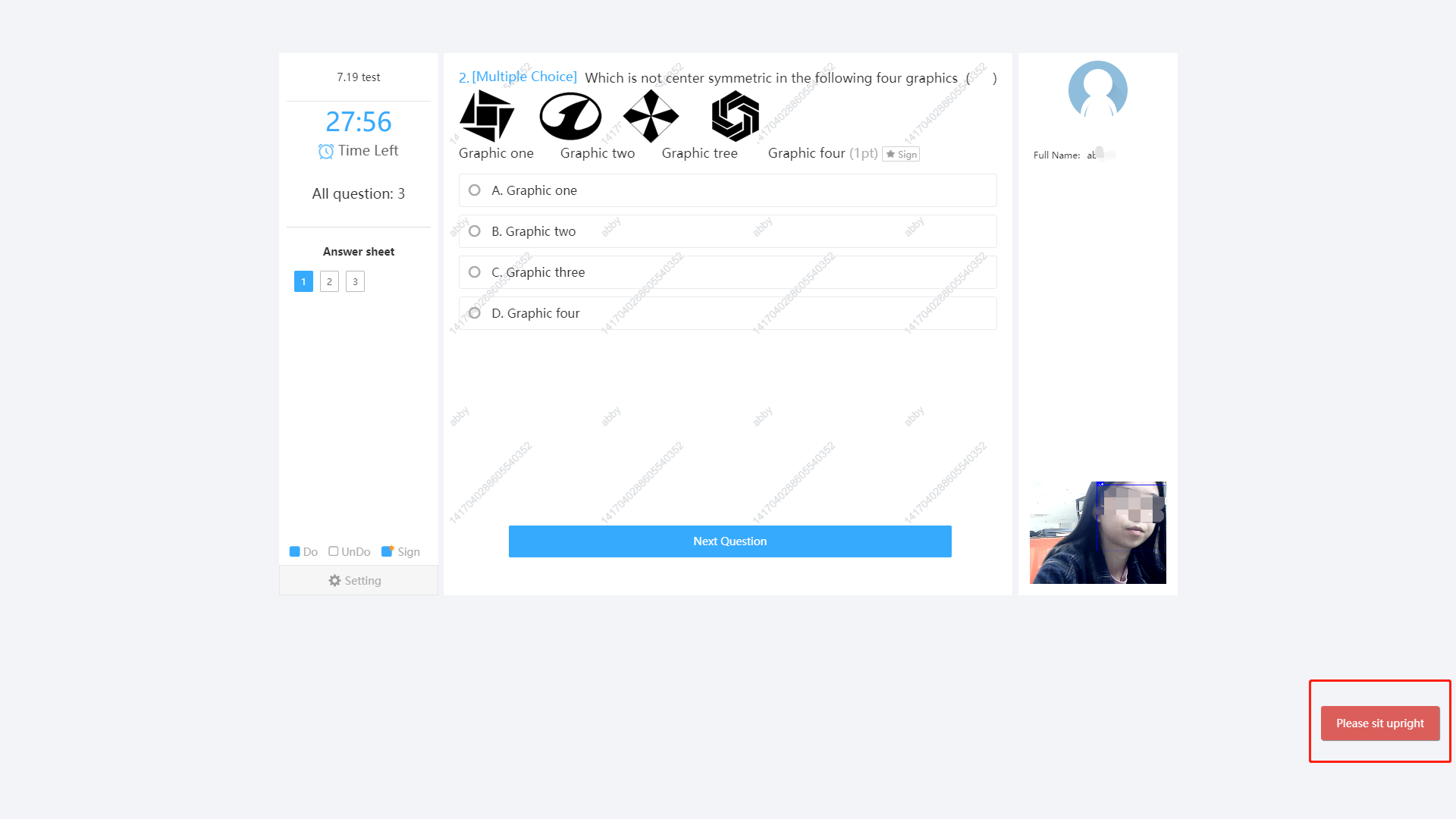Online exams are not new to most people. Not only schools, but also institutions and enterprises in other industries have gradually shifted offline exams to online exams. In order to ensure the fairness of the test, anti-cheating has become one of the commonly used test functions in quiz maker. Whether you’re a test organizer or a test taker, I hope this article helps you learn more about cheating in online exams.
Why is anti-cheating important for online exams?
Remote virtual exams are being used on important exams across industries, candidates seem to have more opportunities to cheat. Cheating has a huge impact on exam rankings. But with the development of technology, cheating prevention for online exams is easier to achieve.
What exam behavior is prohibited?
- Switch the screen
- Someone takes exams on behalf of candidates
- Look around
- Frequent bowing
- The exam environment is noisy, other human voices suspected
- Candidates disappear from the monitor screen
- Multiple people appear in the surveillance screen
- Use external devices
- Use software that can be used for cheating, such as communication software, translation software, etc.
- Exam interruptions
How will proctors detect the above behaviors?
The above test behaviors are prohibited because test takers who engage in these behaviors may successfully cheat to get high scores. The provider of the quiz maker has a good understanding of the exam behavior of the candidates, and they can easily deal with the various cheating methods of the candidates.
Switch screen
During the exam, candidates who want to cheat will switch to a new window to find the answer. The screen switching restriction feature in Online Exam Maker prevents candidates from switching screens multiple times. Every time the candidate switches the screen, there will be prompt window popping up. If the candidate switches the screen more than the limit, the examination system will compulsorily submit their examination paper.

Abnormal behavior
One of the behaviors of candidates during the test includes looking around, bowing their heads frequently, etc. The candidate’s examination behavior can be automatically detected by the examination system or monitored in real time by the invigilator. Invigilators can send cheating warnings to candidates or even submit candidates’ exam papers.

Use of third-party software or equipment
After the test starts, candidates need to close the communication, translation and other software that may be used for cheating, or other external devices to enter the test. When the test taker is answering the question, the test system will lock the screen, test takers cannot perform other operations.
Someone takes exams on behalf of candidates
Before entering the exam, candidates need to go through the face recognition system. Only candidates who pass face recognition can successfully enter the exam.
In today’s increasingly advanced technology, it is no longer difficult to prevent cheating in virtual exams. Technology has allowed people to spend less time on online tests. Click the “Sign up” button at the top right to learn more about the online test.